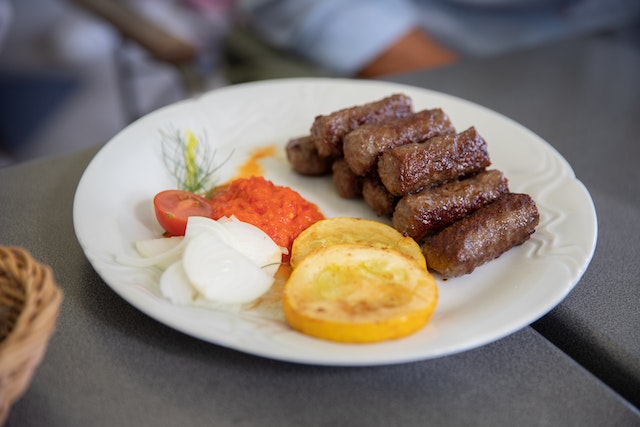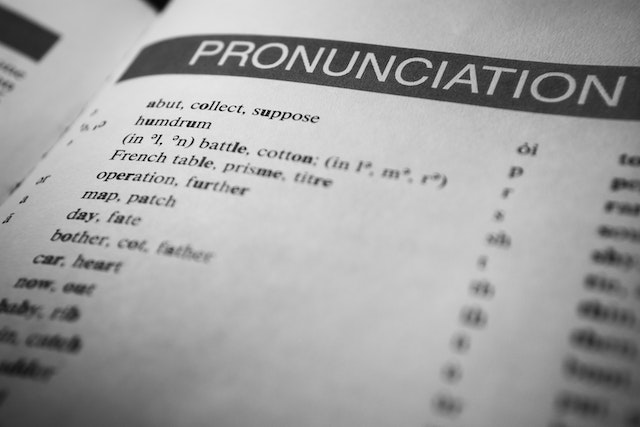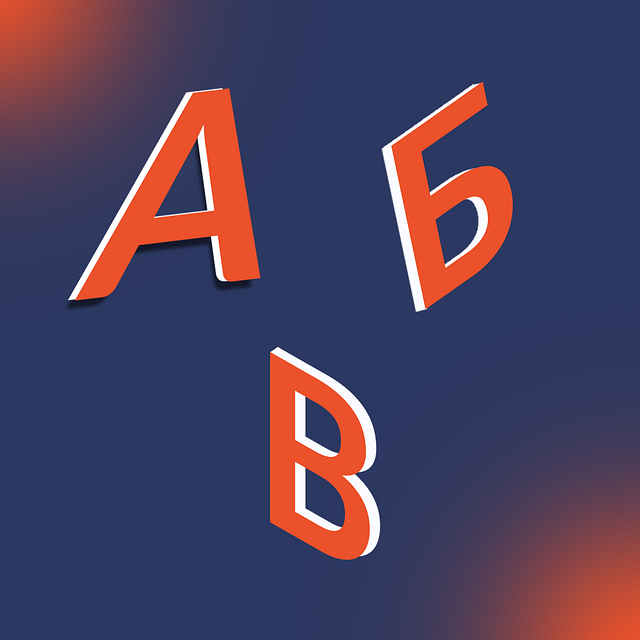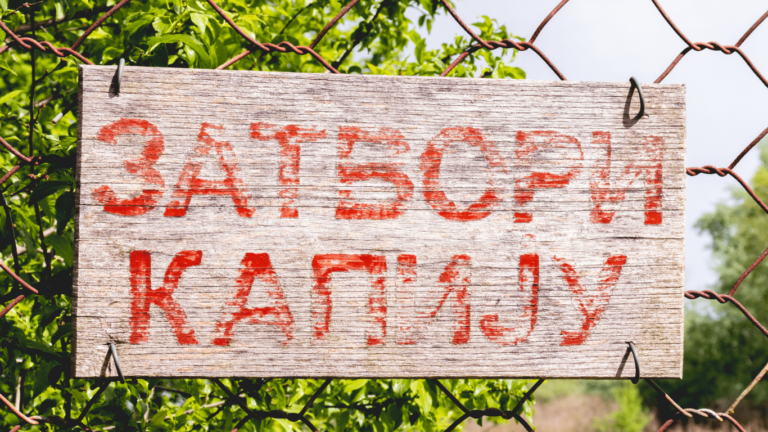Written by: Olivera Tolimir
Hey, how’s your Serbian pronunciation?
Oof, is it a painful subject?
Even if we exclude grammatical cases and conjugations from the equation, learning the Serbian language can be tricky. Some Serbian letters have specific pronunciations.
By specific, we don’t mean to say that no language has something similar. And if you have similar vowels and consonants in your language, it’ll be easier for you to master them in Serbian.
But today’s focus will be on the pronunciation issues most English speakers encounter.

Ljuljaj me, ljubavi!
The subtitle translates as Swing (Rock) Me, My Love.
Can you say ljuljaj?
It’s tricky because of the letter lj that shows up twice. This sound will make your life difficult if you don’t master it.
Why? Because it sounds similar to l, which exists in English (Laura, love). So, many who start learning the Serbian language pronounce it the same as l. Then, their teacher tells them it sounds like a combination of l and y sounds.
But the problem with the mentioned approach is that beginners usually understand it as You should pronounce l and y separately.
You shouldn’t.
Although, in Latin script, the letter lj looks like l and j written together, when we write it in Cyrillic, we can see it’s a whole different letter. So, this is L in Cyrillic: Л, while this is LJ: Љ.
So, how should I pronounce it then?! – you may wonder.
Here are the tips:
- Smile.
- Your whole tongue should be in contact with the upper palate.
- The upper and lower teeth almost touch each other.
- The tip of the tongue touches the back of the teeth.
So, the tip of the tongue is in a similar position for lj as it is for l, but the body of the tongue touches the upper palate.
Did it help?
Try saying these words now: ljuljaška, malj, Ljiljana, uljudan, razljutiti.
Njopam njoke s njom!
The sentence from the subtitle means I’m eating gnocchi with her!

As you can guess, the problematic one is the sound nj. Again, although it’s written as two letters in Latin script, it’s one specific sound. In Cyrillic, we write it as Њ.
Again, don’t pronounce it as n + y, because it won’t sound natural.
This one is easier to grasp than lj because you’ve heard similar sounds in English. For example:
- British pronunciation of new
- the word onion.
It isn’t that difficult, is it?
Try reading these words: njiva, dunja, njuška, sanjiv, njanjav.
Riba ribi grize rep!
Our next problematic sound is R.
The subtitle translates as A fish bites (another) fish’s tail. It’s a famous Serbian tongue twister used to practice this exact sound. It can be a game: a group competes by repeating the sentence several times as fast as possible. If you stutter, you lose!
The sentence is a great way to help children learn how to pronounce r in a fun way.

Anyway, there’s a big possibility you’d find it tricky to say r while learning the Serbian language. It’s because the English r is quite different than the Serbian one.
The Serbian r is more similar to the Spanish sound. So, if you’re familiar with the Spanish words pero (but) or caro (expensive), that’s the same r you need in Serbian!
If you haven’t learned Spanish, never mind. You’ve encountered this sound already in English.
Although English doesn’t have this exact sound, if you say words with a double t fast enough, it will sound like a Serbian r.
Try saying butter or better fast a few times. Does it sound similar to our r?
If this still doesn’t help, check out the theoretical explanation.
The sound r is very similar to the sounds l and n (much more similar than it is to the English r). That’s why you should start by putting your tongue in a position of saying l. When pronouncing the sound r, a tongue should vibrate.
Try saying the words: ruka, orao, ruralan, sport, ostrvo.
If you’re confident enough in your pronunciation, go a step further by practicing the tongue twisters:
Na vrh brda vrba mrda.
Grk sa grma mrko gledi. Mrk je Grk i brk mu mrk.
Cicija cicijaši!
The word cicija means a miser, and the verb cicijaši is being a miser.
Saying c isn’t that difficult since you’ve encountered it in English. Yet, English speakers often have issues with the c pronunciation while learning the Serbian language. It’s because they’re heavily influenced by English pronunciation.
Remember that a Serbian c is never pronounced as the c in English words cat or cinema.
We always read it as ts: it’s, that’s, boots.
In Cyrillic, we write C like this: Ц.
Try saying these words: cipela, cucla, ocediti, dvocevka, rascepati.
Čačani vole Čačak
The subtitle translates as People from Čačak love Čačak. (Čačak is a town in Serbia).
So, one important thing before we continue: this thing above c isn’t an accent. It’s a marker of a whole other letter.
In Cyrillic, we write Č like this: Ч.
The sound č is pronounced like Ch in Charlie or checkout.
Try saying these words: čupav, čutura, očerupati, sačekati, iščupati.
Ćevapčići s Ćićarije

Although we aren’t sure if people near the mountain Ćićarija like to eat ćevapi, we needed this sentence for our ć exercise.
So, the sound ć looks similar to the c and č, but once again: that thing above it isn’t an accent.
The letter Ć is written like this in Cyrillic: Ћ.
The sound ć is a bit more tricky for English speakers while learning the Serbian language. The common mistake is pronouncing it the same as č.
So, to pronounce ć, your tongue should be on your soft palate and the tip of the tongue touching your lower incisors.
The sound ć is softer than č.
The most common Serbian informal greeting is ćao, and it’s borrowed from the Italian ciao.
Do you know how to say ciao? To learn the Serbian ć pronunciation, try repeating the same sound in these words: ćao, ćurka, hoćemo, otići, ćevapčići.
Jaja i jogurt
The subtitle says eggs and yogurt. Add some bacon, and it’s one of the favorite Serbian breakfasts!

How do you pronounce Serbian j? Do you read it as J in John? Well, you should stop now!
The Serbian j has a very similar articulation as the vowel i (which is pronounced as the English e, by the way). It’s the sound of y in the words yogurt and yes.
Try reading these words: ja, jaje, sjajno, svačiji, pasji.
Uvek u pravu!
Always right, says this subtitle. And you’ll be if you listen to our Serbian pronunciation pieces of advice!
We know you’re tired already, so we left the easy one for the end!
A common mistake English speakers make while learning the Serbian language is they pronounce the sound u like they would in English. For example, you shouldn’t read u at the beginning of the word like you would read it in the word ugly. Read it as oo, like in the words troop and boot.
To finish learning the Serbian language for today, read these words: uvek, usna, rupa, bubuljica, grupa.
We hope this helped you master your pronunciation of the trickiest Serbian sounds!
If you’d like to practice pronunciation in person with the help of a native speaker, choose one of our great teachers and book your Serbian class here!
P. S. If you’d like to take your Serbian pronunciation to the next level, check out these fun tongue twisters!



